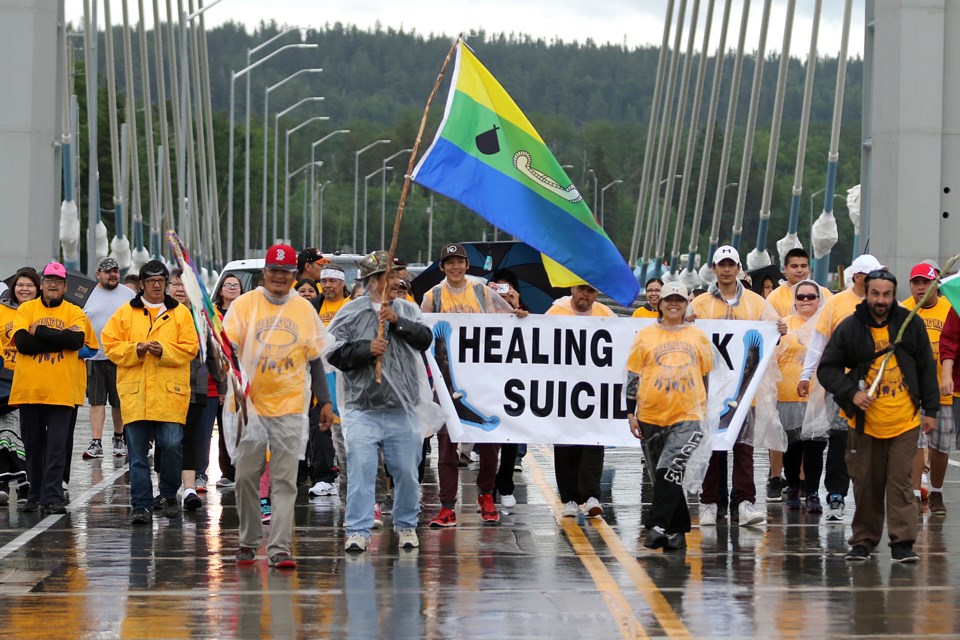NIPIGON – When Marcy Lemieux was 16, her best friend committed suicide.
It was his second attempt.
His death has haunted the Long Lake No. 58 First Nation woman ever since.
She’s spent the past five days trekking along Northwestern Ontario’s Highway 11, joining more than two dozen other Indigenous men, women and children on a 322-kilometre Healing Walk, to raise awareness for a number of issues facing the region’s First Nation people, including suicide, the trauma wrought on residential school survivors, racism and the fight for clean land and water.
Lemieux said she thinks the message is getting across, as traffic flows past along the Trans Canada route.
“This is our fifth day. We are now walking for the people who have committed suicide or are thinking of it and hopefully sending those positive thoughts and prayers, as well as us, to get to them on this journey,” Lemieux said, taking a brief respite on Thursday morning after crossing the newly built Nipigon River Bridge, police holding up traffic in both directions for about half an hour to ensure a safe crossing of the span.
The reaction has been fantastic, Lemieux said, vehicles motoring past with burst of encouragement.
“We’ve had many people stop on the highway, run to us and give us money or take pictures with us. They’re honking or yelling out their windows. It’s been amazing,” she said.
Charles Fox, the former Ontario Regional Chief, said the seven-day march began in Ginoogaming First Nation and will lead the walkers into Thunder Bay on Friday evening and to Mount McKay on Canada Day morning, starting from city hall with speeches and a ceremony beginning at 10 a.m.
He said it’s been an emotional few days for everyone involved.
“I’m a personal survivor of the residential school system. I left home when I was eight years old and I never got back until I was 20 years old. Yesterday was very emotional for me, but I really enjoyed it,” Fox said.
“It brings a lot of hurtful feelings, but also good memories. So when you’re walking, you walk that off.”
Fox said as a former grand chief, he’s had to deal with every issue being raised during the Healing Walk over the past 30 years.
“For me, it’s been very personally rewarding and very healing and very helpful.”
He added it’s not just Indigenous people who are facing many of these same issues and struggling to deal with the aftermath.
“It’s an issue we have to grapple with and we have to take a hold of,” Fox said. “It is a challenge, but I believe that society in general should step up in general to tackle those issues. It’s not just generic to the First Nation’s people.
“All these issues that we’re looking at are part of everyday society. So how do we come together as a society to help each other out dealing with those issues?”
